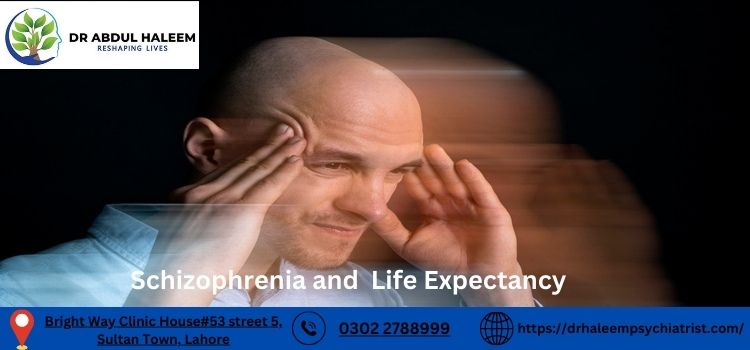Overview
Anxiety is a normal emotion that everyone experiences from time to time. It is your body’s way of responding to stress or danger, and it helps you stay alert, focused and ready for action. When you feel anxious, your brain releases hormones which cause physical changes in your body such as increased heart rate, rapid breathing and tense muscles. This ‘fight or flight’ response can be useful in situations where it is important to respond quickly, such as when you need to avoid a dangerous situation.
However, sometimes the body becomes overly sensitive and responds to everyday events as if they were threats. It is this excessive anxiety that can cause distress and interfere with daily living.
Anxiety can manifest itself in different ways, and there are many types of anxiety disorders which include generalized anxiety disorder (GAD), social anxiety disorder, panic disorder, phobias and obsessive-compulsive disorder. Symptoms vary between individuals but may include feeling nervous or worried, sweating, trembling or rapid heartbeat.
Can anxiety cause death?
Although anxiety is not life-threatening in itself, it can lead to other health problems that may cause death. For example, people with severe anxiety may be more prone to developing heart disease due to the stress hormones released in response to their anxious thoughts and feelings. Additionally, people with panic disorder or other types of anxiety disorder may turn to drugs or alcohol to cope with their symptoms, which can be potentially life-threatening.

Can anxiety cause difficulty speaking?
Yes, anxiety can cause difficulty speaking. This is known as selective mutism and is more common in children than adults. It can be caused by extreme fear or distress when trying to communicate with others, which can lead to an inability to speak at all or difficulty finding the right words.

If you or a loved one are experiencing difficulty speaking due to anxiety, it is important to seek professional help. A qualified health professional can make an accurate diagnosis and provide advice and treatment options which may include medication, lifestyle changes or talking therapies such as cognitive behavioral therapy (CBT). With the right support and treatment, you can learn how to manage your anxiety and communicate effectively.
Can anxiety lead to psychosis?
Yes, anxiety can lead to psychosis. Psychosis is a mental health condition which affects how you think, feel and behave and can cause difficulty distinguishing between what is real and what is imagined. Symptoms include delusions (false beliefs), hallucinations (seeing or hearing things that are not there) and changes in behavior.

Can you faint from anxiety?
Yes, you can faint from anxiety. Anxiety can cause symptoms such as rapid or shallow breathing, dizziness and lightheadedness which can lead to fainting. It is important to seek help if you are feeling anxious or experiencing any other warning signs of fainting such as paleness, sweating or nausea.
How to deal with separation anxiety in relationships?
Separation anxiety can be difficult to manage in relationships, but there are steps you can take to help you cope. These include:
• Talking to your partner about how you feel and the things that make you anxious
• Identifying triggers which cause anxiety and developing coping strategies
• Practicing relaxation techniques such as deep breathing or mindfulness
• Spending time apart from your partner in a healthy way
• Recognizing when you are feeling overwhelmed and seeking professional help

It is important to seek professional help if you are experiencing anxiety so that any underlying issues can be identified and treated appropriately. A qualified health professional can provide advice and treatment options which may include medication, lifestyle changes or talking therapies such as cognitive behavioral therapy (CBT). With the right support and treatment, you can learn how to manage your anxiety and maintain a healthy relationship.
How i cured my anxiety disorder?
Everyone’s experience with anxiety disorders is different, so there is no one-size-fits-all solution for curing an anxiety disorder. However, some strategies that may help in managing and coping with symptoms include:
• Practicing relaxation techniques such as deep breathing or mindfulness
• Exercising regularly to reduce stress levels
• Eating a balanced diet to maintain energy levels
• Developing healthy sleeping habits
• Limiting or avoiding substances such as alcohol and caffeine which can exacerbate symptoms
• Talking to friends, family or a therapist about your feelings and worries
• Seeking professional help if necessary
How to make doctor’s appointment for anxiety?
Making an appointment to see a health professional about anxiety is the first step towards getting help and feeling better. You may want to start by speaking with Dr Abdul Haleem who can provide advice on treatments for anxiety or any mental health problem.
When making an appointment, it is important to let the doctor or clinic know that you are seeking help for anxiety. This will ensure that the correct measures are taken and allow them to provide the best care for your specific needs.
Once you have made an appointment, it is important to attend all follow-up appointments and keep your doctor or therapist updated on how you are feeling. With the right support and treatment, you can learn how to manage your anxiety and live a fulfilling life.
Conclusion
Anxiety is a common mental health problem that can affect people in different ways. It is important to seek professional help if you are experiencing anxiety or any other warning signs of psychosis so that an accurate diagnosis and treatment plan can be developed. Treatment options may include lifestyle changes, therapy or medication and with the right help, you can learn how to manage your anxiety and live a fulfilling life.
It is essential to make an appointment with your primary care doctor or mental health professional if you need help managing your anxiety symptoms. When making an appointment, it is important to let the doctor or clinic know that you are seeking help for anxiety in order to ensure that the correct measures are taken. With the right support and treatment, you can learn how to manage your anxiety and maintain a healthy partnership.


